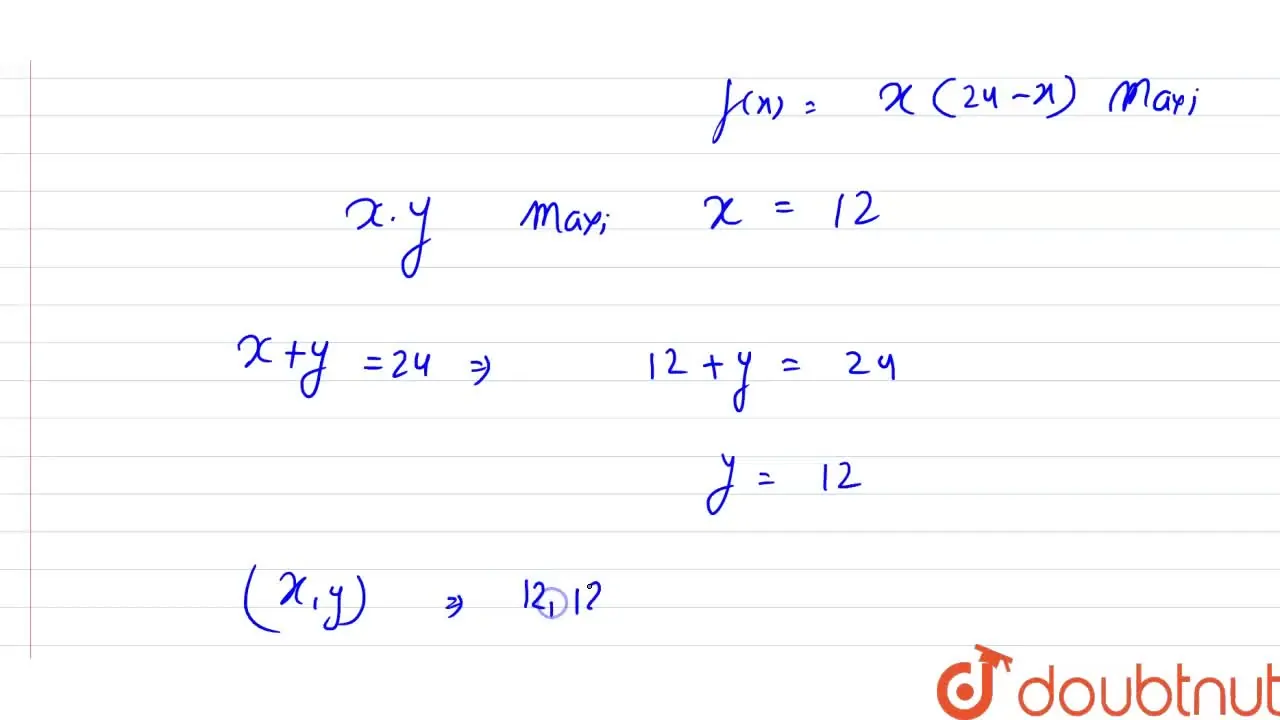Amongst all pairs of positive number with sum 24, find those whose product is maximum
Let the number be x and (24−x)
Let P=x(24−x)=(24x−x2)
then, dPdx=(24−2x)andd2Pdx2=−2
Now, dPdx=0⇒(24−2x)=0⇒x=12
Thus, {d2Pdx2}x=12=−2<0
∴x=12, is point of maximum
Hence, the required number are 12 and 12
Related Playlists
- BOOK - RS AGGARWALCHAPTER - APPLICATIONS OF DERIVATIVESEXERCISE - Exercise 11A21videos
APPLICATIONS OF DERIVATIVES
- BOOK - RS AGGARWALCHAPTER - APPLICATIONS OF DERIVATIVESEXERCISE - Exercise 11B17videos
APPLICATIONS OF DERIVATIVES
- BOOK - RS AGGARWALCHAPTER - ADJOINT AND INVERSE OF A MATRIXEXERCISE - Exercise 737videos
ADJOINT AND INVERSE OF A MATRIX
- BOOK - RS AGGARWALCHAPTER - AREA OF BOUNDED REGIONS EXERCISE - Exercise 1739videos
AREA OF BOUNDED REGIONS
Similar Questions
Amongst all pairs of positive numbers with product 256, find those whose sum is the least.
View SolutionAmongst all pairs of positive numbers with product 256, find those whose sum is the least.
View SolutionAmongest all pairs of positive numbers with product (i) 256 (ii) 64, find those whose sum is least.
View SolutionFind two positive numbers whose sum is 14 and product is maximum.
View SolutionFind two positive numbers whose sum is 16 and product is maximum.
View SolutionFind two positive numbers whose sum is 14 and the sum of whose squares is minimum
View SolutionFind two positive number whose sum is 24 and their sum of square is minimum.
View SolutionFind two positive numbers whose sum is 16 and the sum of whose cubes is minimum.
View SolutionFind two positive numbers whose sum is 14 and the sum of whose squares is minimum.
View SolutionFind two positive numbers whose sum is 14 and the sum of whose squares in minimum.
View Solution


